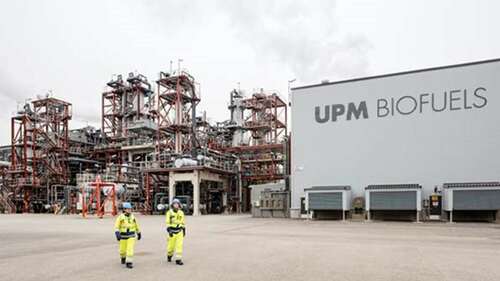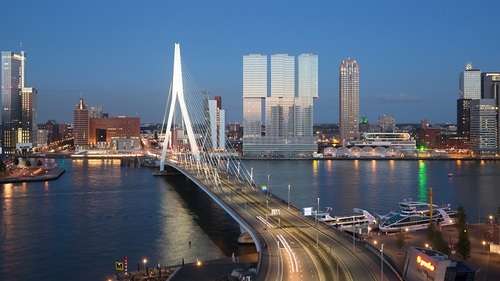UPM’s growth plans in biofuels progress to the next stage
UPM moves forward with biofuels growth plans and starts the basic engineering phase of a next generation biorefinery. The potential biorefinery would have an annual capacity of 500,000 tonnes of high-quality renewable fuels including sustainable jet fuel. The products would significantly reduce carbon footprint in the road transport and aviation, as well as replace fossil raw materials with renewable alternatives in chemicals and bioplastics.
“The planned biorefinery would scale up UPM’s successful biofuels business to a new level. At the same time, it would further improve long term competitiveness and sustainability performance of UPM Biofuels by introducing several sustainable feedstocks and achieving uniquely high CO2 emission reduction compared to biofuels currently in the market,” says Jyrki Ovaska, Chief Technology Officer of UPM.
UPM’s solid wood biomass-based residues and side streams would play a substantial role in the feedstock pool. In addition, it would consist of sustainable liquid waste and residue raw materials. “UPM has an excellent position and expertise acquired over the decades in biomass sourcing both in Finland and Central Europe thanks to our large-scale operations in the pulp, paper, timber and plywood businesses. We are also developing and testing innovative carbon farming concepts.”
UPM will now proceed with a detailed commercial and basic engineering study to define the business case, select the most innovative technology option and estimate the investment need. The technology concept includes the use of green hydrogen in the production process. During the study UPM will also review the operating environment primarily in two locations: Kotka, Finland and Rotterdam, the Netherlands.
The estimated duration of this basic engineering phase is minimum 12 months. If all preparations are concluded successfully, UPM would initiate the company’s standard procedure of analyzing and preparing an investment decision.
“The UPM Lappeenranta Biorefinery, with annual capacity of 130,000 tonnes, has been a showcase of creating a successful new business beyond fossils. Years of investment in R&D and innovation have paid off. This gives us confidence to plan scaling up this exciting business”, says Ovaska.
Categories
Countries
Companies
Latest news
INEOS launches €250m investment supported by the French Government to secure the future of French industry at Lavera
The project marks the first phase of a long-term regeneration plan to reduce emissions, boost reliability, efficiency and competitiveness, with support of the French State.
Hycamite’s technology to decarbonize shipping awarded AiP by industry leader DNV
Kokkola Industrial Park →Hycamite’s proprietary Thermo-Catalytic Decomposition (TCD) technology offers a new approach to producing clean hydrogen by breaking down methane, the primary component of liquefied natural gas (LN...
Clariant catalysts will power the Ecoplanta: Europe's first waste-to-methanol plant
Chemmed Cluster Tarragona →Repsol is building Europe’s first plant to produce renewable methanol from urban waste The facility will use Enerkem gasification technology to produce 240 KTA of methanol Clariant will supply cata...
Lilly plans to build a new $3 billion facility to boost oral medicine manufacturing capacity in Europe for patients worldwide
Netherlands site will bring 500 manufacturing and 1,500 construction jobs while further strengthening Lilly's global supply chain


